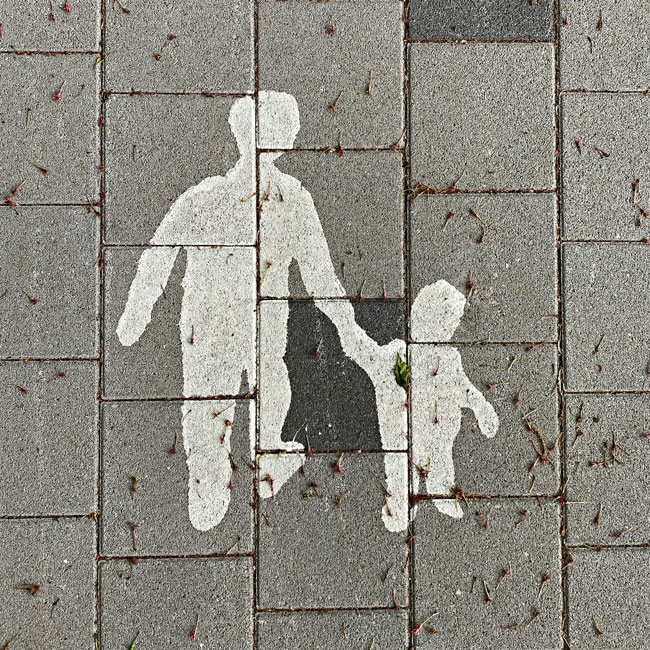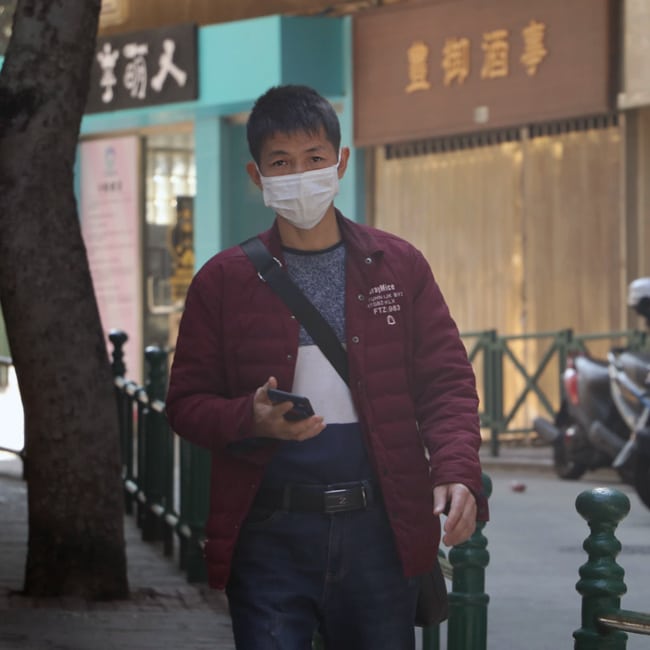Disease in a Time of Uncertainty

Disease in a Time of Uncertainty
Opinion + AnalysisHealth + WellbeingPolitics + Human Rights
BY Nick Evans 19 FEB 2020
If you’re reading this, there’s a good chance you’ve heard of the outbreak of coronavirus, officially called “SARS-CoV-2”, that has caused disease primarily in Wuhan, China.
The virus, which causes a disease called coronavirus disease 2019 (COVID-19), has spread to 25 countries, infected more than 73,000 people, and caused 1,873 deaths. The World Health Organization has declared the outbreak a “Public Health Emergency International Concern” and more than 50 countries — against the WHO’s advice — have implemented travel restrictions and quarantines in an attempt to prevent the spread of the disease.
There’s been a lot of worry about this coronavirus, but arguably the thing that is driving this worry is uncertainty. It can’t be the deaths alone – fewer than 1,900 people have died of COVID-19. In contrast, since October, 14,000 people in the USA alone have died of influenza.
Unlike the 1918 influenza pandemic or the 2009 influenza pandemic, both of which killed young people faster than normal flu, the people who are dying of COVID-19 are typically old, have pre-existing diseases that make them vulnerable to pneumonia (one of the main ways COVID-19 kills you), or are heavy smokers.
Despite its rapid increase in cases in China — driven, in part, by a change in definition of how they count cases — the number of cases elsewhere has stayed relatively low.
A reported 2.5 per cent of the patients diagnosed in China have died, yet fewer than 0.4 per cent of patients elsewhere in the world have died – a bit more than seasonal flu, but not much, and not as widely.
So why the fear? And why the fantastical conspiracies: tens of thousands dead but hidden in China; a laboratory escape; or even a biological weapon? There are surely a lot of reasons: the actions of the Chinese government during the 2003 SARS outbreak; general distrust of China in a media responding to Washington’s belligerence; and some enterprising grifters out to make their name or make a buck.
Still, these all take hold in an environment of uncertainty. And in ethics, how we deal with uncertainty is a tricky case. A classic example of why uncertainty can be tricky from the perspective of ethics goes something like this.
Say I ask you to play a game: I roll a normal dice; if it lands 1-5, you get $1; if it lands on a 6, you pay me $2. To many people this seems like a good deal. Five chances to win; one to lose. You should expect, mathematically, to win 50c each game. But what if I pull out a weird, many sided dice with 120 sides. If the dice land 1-119, you get $1. But if it lands 120, I get $59. It might feel different, but the expectation (again, mathematically) remains the same.
Now imagine a huge dice in which that one chance of a loss was $10,000, or even $1 million… Part of the reason it feels different is psychological. After all, $59, or $10,000 is so much more than $2, and so even though your chances of losing are decreasing, the pit in your stomach at the thought of losing $10,000 is probably a lot more. Moreover, you’re risking that for $1 each time. Sounds like playing with fate, and you might not want to play with fate when fate could take your house if it wins.
Another part of the reason it feels different is that we don’t often encounter — or at least don’t recognise — extreme cases in our lives where we face a small chance of a huge loss. My colleagues and I have looked at this phenomena in the case of things like laboratory safety, or industrial regulations. But the same goes for things like pandemics.
Coronaviruses circulate in animal populations, usually certain species of bat, and typically don’t infect humans.
Occasionally a virus does, often through an intermediate species, and the results can be bad. It can be really hard to figure out how bad, though. So we don’t know when these viruses will appear, or how bad they are going to be.
Given that, it can be really easy to get complacent before the fact, and even easier to overreact after the outbreak starts. This leads us to take drastic actions such as to violate human rights in the name of protecting public safety (or at least appearing to protect safety), even when those actions are shown to be ineffective. But this is because instead of winning a dollar, preparedness costs us that dollar. It’s hard to get governments to spend dollars today that might not benefit us until 2030, but if we wait until we need it, we could lose everything.
It turns out that the best solution to these scary, uncertain diseases is to invest, as a society, day to day. That costs resources, but it’ll help out when the “big one,” the next 1918 flu, comes. COVID-19 is unlikely to be that kind of pandemic, but even it is testing global health systems.
We need, as a society, to get better at dealing with the uncertain, by investing in preparedness today.
Better healthcare systems; more nurses, doctors, and scientists; a more aware community; local plans for infection control that match the plans of national governments; and protections for people in quarantine so they don’t lose their livelihoods or, as is the case in some countries, have to pay for their own quarantine when they aren’t even sick.
These investments cost governments money. They cost us taxes. But if you’re scared of COVID-19, with all its uncertainty, you should be much more scared that we’re not doing the ordinary, everyday things that’ll keep us safe.
Ethics in your inbox.
Get the latest inspiration, intelligence, events & more.
By signing up you agree to our privacy policy
You might be interested in…
Opinion + Analysis
Health + Wellbeing, Relationships
Women must uphold the right to defy their doctor’s orders
Opinion + Analysis
Politics + Human Rights
Did Australia’s lockdown leave certain parts of the population vulnerable?
Opinion + Analysis
Politics + Human Rights, Society + Culture
Making sense of our moral politics
Opinion + Analysis
Business + Leadership, Health + Wellbeing
Navigating a workforce through stressful times
BY Nick Evans
Dr Nicholas G. Evans is an assistant professor of philosophy at the University of Massachusetts Lowell who focuses the majority of his research on national security and the ethics of emergent technologies. Nick also maintains an active research program on the ethics of infectious disease, with a focus on clinical and public health decision making during disease pandemics.
Respect for persons lost in proposed legislation

Respect for persons lost in proposed legislation
Opinion + AnalysisPolitics + Human RightsSociety + Culture
BY Simon Longstaff The Ethics Centre 19 FEB 2020
The Ethics Centre is a strong supporter of human rights. As such, we agree with the principal purpose of the draft Religious Discrimination Bill (2019) legislation – which is to outlaw discrimination against all persons on the basis of their religion. However, we also argue that the exposure draft is deficient in a number of important ways.
We recently made a submission articulating these concerns in response to the second exposure draft of the proposed legislation.
Core to the submission is our belief that human rights form a whole and are indivisible. That is, we are disinclined to support legislation that creates broad, general exceptions to the principle of non-discrimination. This is especially so when the proposed exceptions risk abrogating the human rights of one group in favour of another.
It’s important to make it clear that the Centre’s approach is not based on a naïve belief that human rights cohere without tension. We know that this is not the case – and understand that religion is, by its very nature, a special case.
This flows from the fact that every religion makes rival, exclusive and absolute truth claims that resist any form of independent evaluation.
Add to this religion’s appeal to transcendent authority, its inclination to order the lives of its adherents and the emotional and spiritual investment it requires of individual and communal belief – and it’s not surprising that difficulties arise not only between religions but in connection with the expression of other human rights.
Our submission seeks to affirm the universal principle of ‘respect for persons’ and to propose criteria for limiting (without totally restricting) the extent to which religious belief can be used as a justification for discrimination.
‘Respect for persons’ is the ethical requirement that we each recognise the intrinsic dignity of every other person – irrespective of their, gender, sex, race, religion, age … or any other non-relevant discriminator. It is this principle that underpins all human rights – and cannot be set aside without undermining the whole edifice.
Given this, we argue that any exception to the prohibition of discrimination that is accorded to people of faith must be severely restricted. That is, lawful discrimination, by people of faith, must only be allowed to the extent strictly necessary to avoid material harm to the religious sensibilities of those affected.
In short: we set a very high bar for those seeking to discriminate against others in the name of religion.
For example, there is a good case for allowing a religious school to discriminate against a person seeking employment as its Principal while concurrently rejecting the religious beliefs that inform the school’s defining ethos.
However, there is no good reason for applying such a test to the employment of a member of the same school’s maintenance team. Nor is there any justification for discriminating against a person based, say, on their sexual orientation if, in all other respects, the person aligns with the religious beliefs of the school – as understood by a significant number of believers.
This brings us to another aspect of the Centre’s submission – that discrimination based on religion only be allowed where there is broad consensus, amongst the faithful, that a belief is a legitimate expression of their religion. This should help avoid giving protection to those who occupy the extreme fringes of religious belief.
Finally, none of the above should be read as justifying restrictions on religious belief. On the contrary, we support the right of people to believe whatever they like. Furthermore, we encourage people to act in accordance with a well-informed (and well-formed) conscience.
We also urge people to realise that to act in good conscience entails the possibility of being punished if your conduct is found to be contrary to law. Such is the case of conscientious objectors who resist conscription into the armed forces, or Roman Catholic priests who choose to respect the ‘seal of the confessional’ even if the law compels them to disclose specified admissions by penitents.
This is the balance that a society needs to maintain: respecting the moral courage of those whose religious beliefs compel them to act in a manner that society must prohibit for the sake of all.
For those who are interested, The Ethics Centre’s submission on the proposed legislation will be published by the Commonwealth Attorney General’s Department in due course.
Ethics in your inbox.
Get the latest inspiration, intelligence, events & more.
By signing up you agree to our privacy policy
You might be interested in…
Opinion + Analysis
Society + Culture
FODI digital returns for three dangerous conversations
Opinion + Analysis
Politics + Human Rights, Relationships, Society + Culture
The sticky ethics of protests in a pandemic
Opinion + Analysis
Relationships, Science + Technology, Society + Culture
5 things we learnt from The Festival of Dangerous Ideas 2022
Opinion + Analysis
Health + Wellbeing, Politics + Human Rights, Relationships










